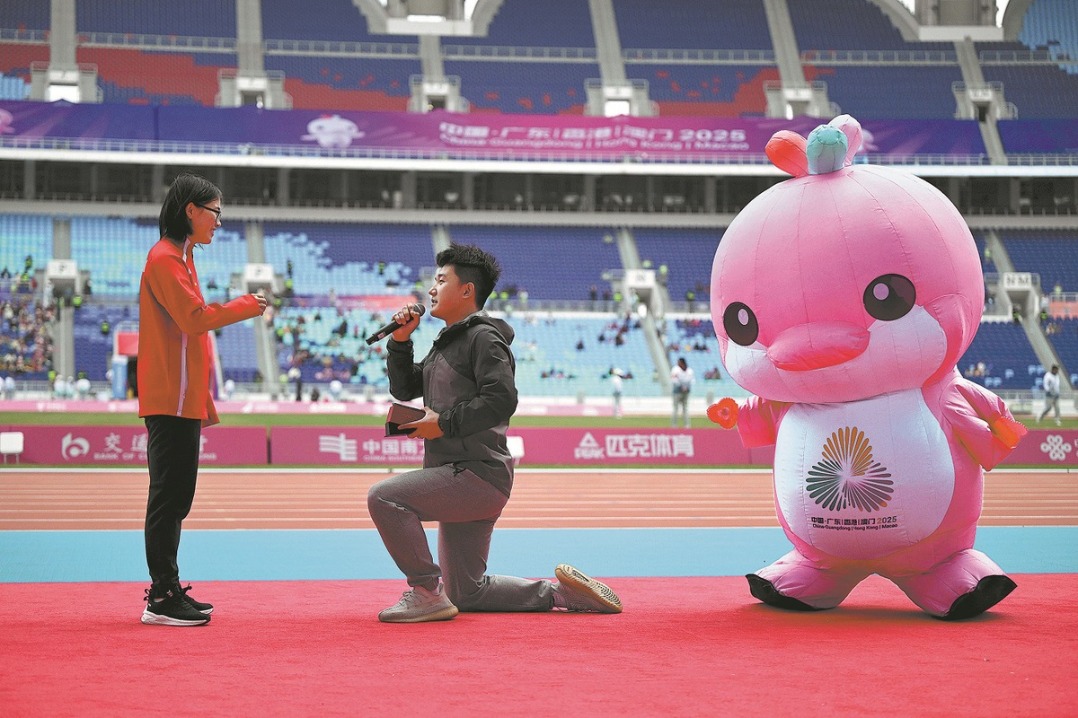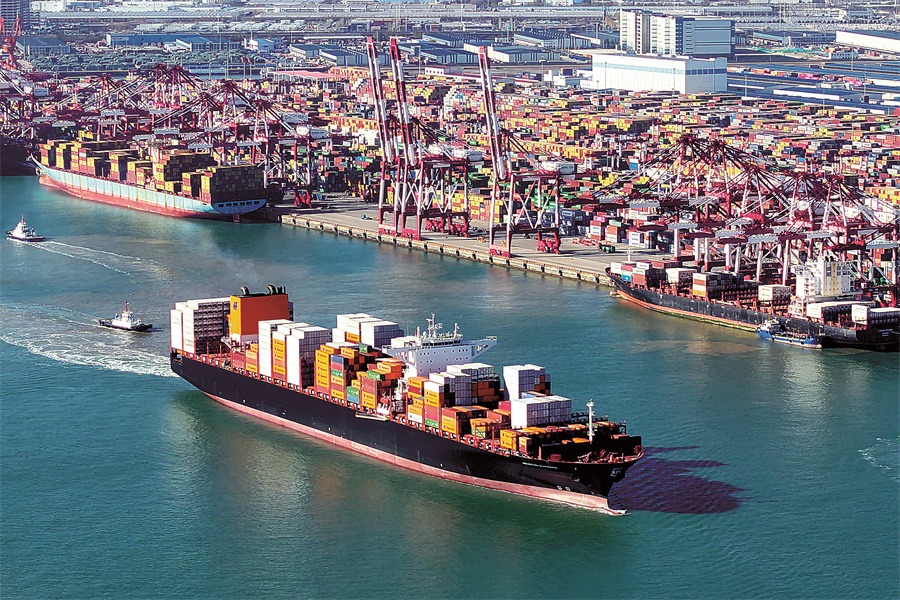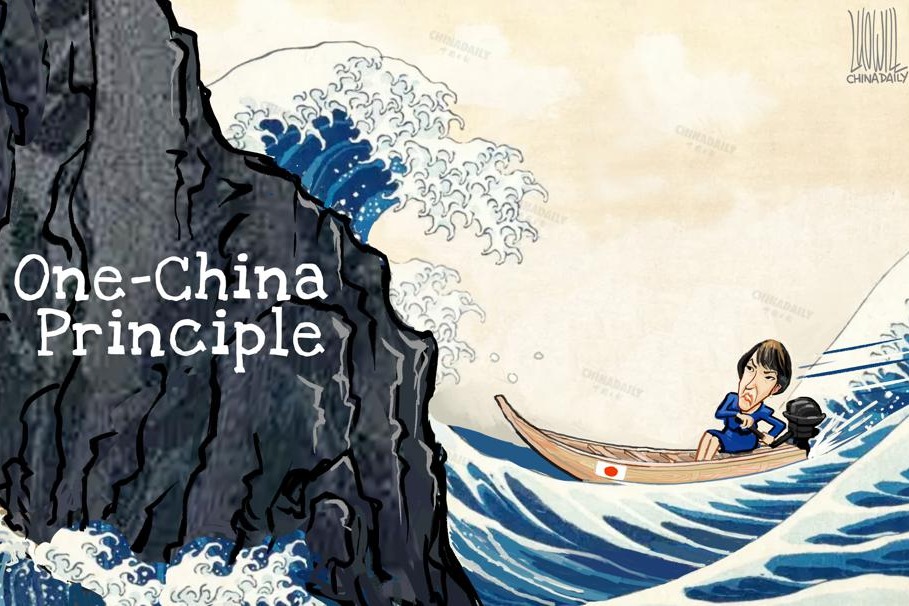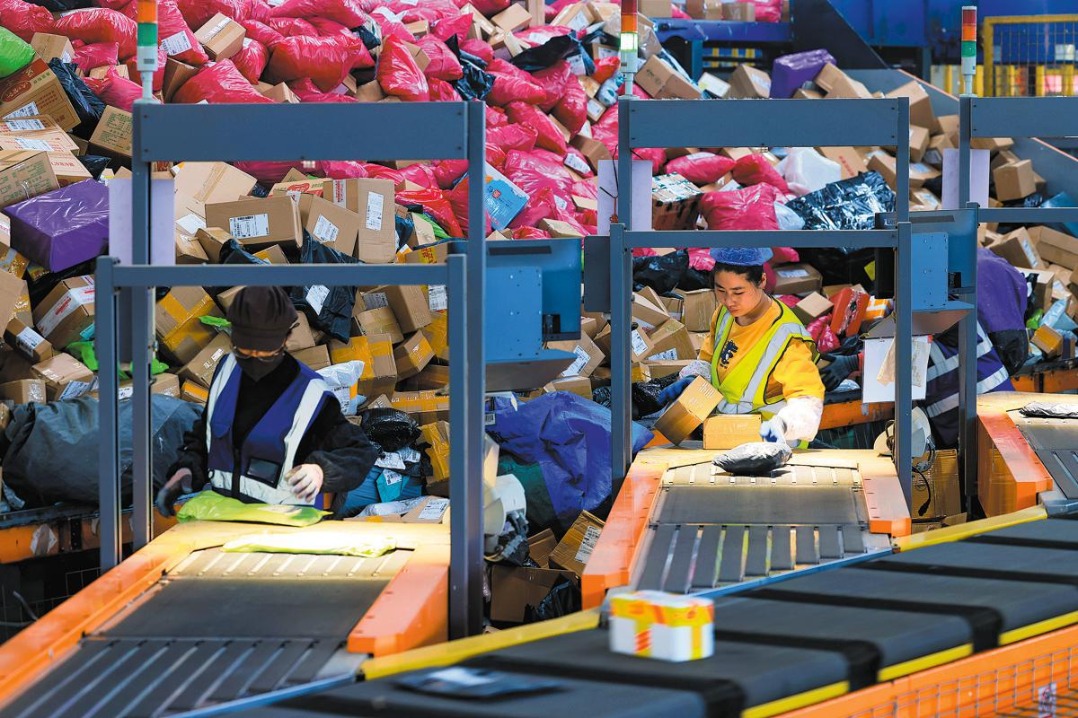'Garden diplomacy'
EU and China should demonstrate care, persistence and patience to nurture better relations


EU and China should demonstrate care, persistence and patience to nurture better relations
At a time when many traditional European democracies, plus the United States, are experiencing alarming signs of internal challenges, they are attempting to delegitimize aspects of the Chinese system by promoting a Eurocentric traditional approach. That has helped fuel geopolitical tensions. The consequences of which are plain to see.
The European Union and various European capitals need to persist in trying to shake free of their reliance on the US and persevere in trying to obtain more strategic autonomy, which includes more upgraded dialogue and cooperation on issues of global concern with various non-Western capitals, including Beijing.
One key aspect is keeping engagement, or in other words, strengthening the columns of globalization. Similarly, decoupling, trade wars and technological disruption are senseless, as is apparent in the so-called war on chips currently championed by Washington against Beijing. Decoupling is not an option, either for the EU or for China. Last November, referring to Washington's pressure on banning high-end chips in order to undermine China's hi-tech sector, the EU foreign policy chief, Josep Borrell, said in a key remark: "Certainly, the United States is our most important ally, but, in some cases, we will not be in the same position or on the same approach toward China."
Spain's influential former minister of foreign affairs Javier Solana, who was also the EU foreign policy chief (a few years before Borrell), stated recently that diplomacy is like gardening. His metaphor of care, persistence and patience is pertinent, and is imperative in directly appealing for perseverance in common efforts to tackle climate change. We should remember that Brussels welcomed the announcement by China to achieve carbon neutrality before 2060 and reiterated its readiness to cooperate on climate and biodiversity issues. In general terms this also refers to COVID-19, particularly now that China's borders are being reopened to some extent. Europe and China could reinforce bilateral and international cooperation, exchanging updated know-how. Additionally, within such an updated framework both sides could better anticipate and manage potential future pandemics.
In addition, while it is true that EU leaders have called on Beijing to participate fully in multilateral debt relief efforts within the framework agreed by the G20 and the Paris Club, such efforts could certainly include the Belt and Road Initiative. Particularly now international infrastructure efforts in various countries are gaining new traction following the standstill imposed by the pandemic.
The sensitive issues blocking the EU-China Comprehensive Agreement on Investment — which has been agreed but is yet to be ratified by the EU — should be hammered out through bilateral negotiations and smart lobbying, so that it can be implemented in all its dimensions. Europe should bear in mind that it is an instrument providing an unprecedented level of market access for EU investors, giving European businesses certainty and predictability for their operations, and Chinese companies likewise. As stated, the CAI will significantly eliminate distortive practices, thereby offering a more level playing field and fairer treatment when competing in each other's markets.
The Chinese FDI in Europe: 2021 Update document, produced by the Rhodium Group in New York and the Mercator Institute for China Studies in Berlin, summarizes China's investment footprint in the EU and the United Kingdom. It shows that Chinese venture capital investment is pouring into European tech start-ups at a record level, reaching 1.2 billion euros ($1.24 billion), more than double the amount in 2021. Much of it concentrated on fintech, e-commerce, artificial intelligence and robotics, vibrant fields of collaboration.
In 2023, Spain and China will celebrate the 50th anniversary of their diplomatic ties, which is an excellent opportunity to explore latent synergies. In doing so, Madrid and Beijing could show a reinvigorated path for EU-China ties when it comes to stressing multilateral understanding as well as cooperation in third markets.

The author is a professor of the Esade Educational Institution in Ramon Llull University and the director of the Dialogue with China Project, Spain. The author contributed this article to China Watch, a think tank powered by China Daily.
Contact the editor at editor@chinawatch.cn

































